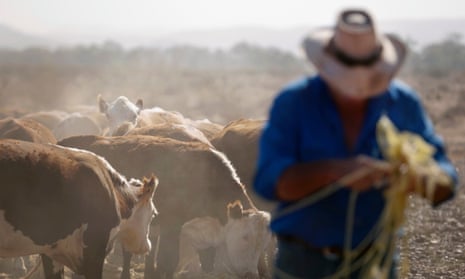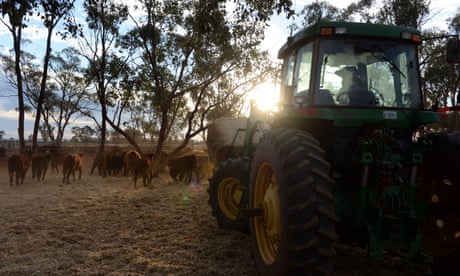Extract from The Guardian

Nationals senator Bridget McKenzie wants to strengthen ABC’s obligation to deliver services for regional Australia
Thu 2 Feb 2017 14.21 AEDT
Last modified on Thu 2 Feb 2017 14.47 AEDTPeople upset or affected by the ABC’s scrapping of its shortwave radio service have been urged to approach a federal inquiry into the national broadcaster’s regional services.
The Nationals senator Bridget McKenzie told Guardian Australia the ABC charter doesn’t adequately ensure all Australians have a guaranteed service, highlighted by the end of its shortwave service to the outback.
On Tuesday transmitters in the Northern Territory were switched off, ending the broadcast of ABC local radio over the frequency that can be picked up in remote areas, including where AM and FM aren’t available.
The ABC has said it would reinvest the $1.2m saving into expanding digital radio services in Darwin and Hobart but faced a backlash from residents and workers in the outback who were not consulted and who said the service was vital for emergency broadcasts as well as their wellbeing and connection with the world.
The ABC also faced bipartisan criticism from government members.
“They’re already so isolated and not having access to radio, it’s an important part of them staying connected,” said McKenzie, who met with the NT Cattlemen’s Association on the issue while in Darwin as part of a parliamentary joint committee. “For a public broadcaster that should be one of the key mandates.”
A Senate inquiry, by the standing committee on environment and communications, was announced in December after the introduction of McKenzie’s private senator’s bill to “strengthen the mandate on the ABC” to deliver services to rural and regional Australia.
The bill would legislate the establishment of a rural and regional advisory board, and mandate the ABC board include as least two directors who live in rural areas. It would also require regional consultation ahead of any relevant policy decision, and for the results to be published annually.
“Right now there’s no need, no imperative for the ABC ... to do any consultation before making decisions which affect service provision,” McKenzie said. “They are an independent body and government can’t come in over the top.
“But I argue that their charter doesn’t cover specifically enough service provision promise guaranteed to rural and regional Australia.”
The ABC has also faced criticism for ending broadcasts of Radio Australia to the Pacific via shortwave.
McKenzie said she had spoken with a number of stakeholders across the NT and the Pacific and urged them to provide submissions to the inquiry. However, she was unaware if any of them had also made a complaint direct to the ABC.
The managing director of the ABC, Michelle Guthrie, has previously said just a handful of complaints had been received.
McKenzie said she was told more than 200 cattle stations in the NT were affected by the loss.
“That aside, a public broadcaster’s role should be to take high-quality news, current affairs, emergency service announcements and entertainment to all citizens,” she said. “The second job should be competing with Kochie and Mel for ratings.”
On the weekend the ABC announced a package of “transitional measures”
for shortwave listeners, including an information service and how-to
guides for content-on-demand, and a donated Vast system to the Royal
Flying Doctors Service.
In statement on Sunday it said more than a third of the ABC’s budget went to servicing rural and regional Australia, and the broadcaster was “deeply committed” to its residents.
Among the inquiry submissions already published the Friends of the ABC group urged the committee to prevent “the creation of “two ABCs” – that is, one for regional and rural Australia, and a separate organisation catering for metropolitan needs”.
Another, written by Stephen Dowding, said statements by the ABC in defence of cutting shortwave were “nonsense”.
Progressive thinktank the Australia Institute said it was “problematic” the inquiry had been brought by the National party.
“The Australia Institute advocates that the ABC equitably serve regional and rural communities and be adequately funded to do so,” it said. “However, changing the ABC Act is not an appropriate mechanism for enforcing granular decisions on operational matters. The ABC’s strategy needs to evolve faster than federal legislation can.”
The ABC has been contacted for comment.

No comments:
Post a Comment